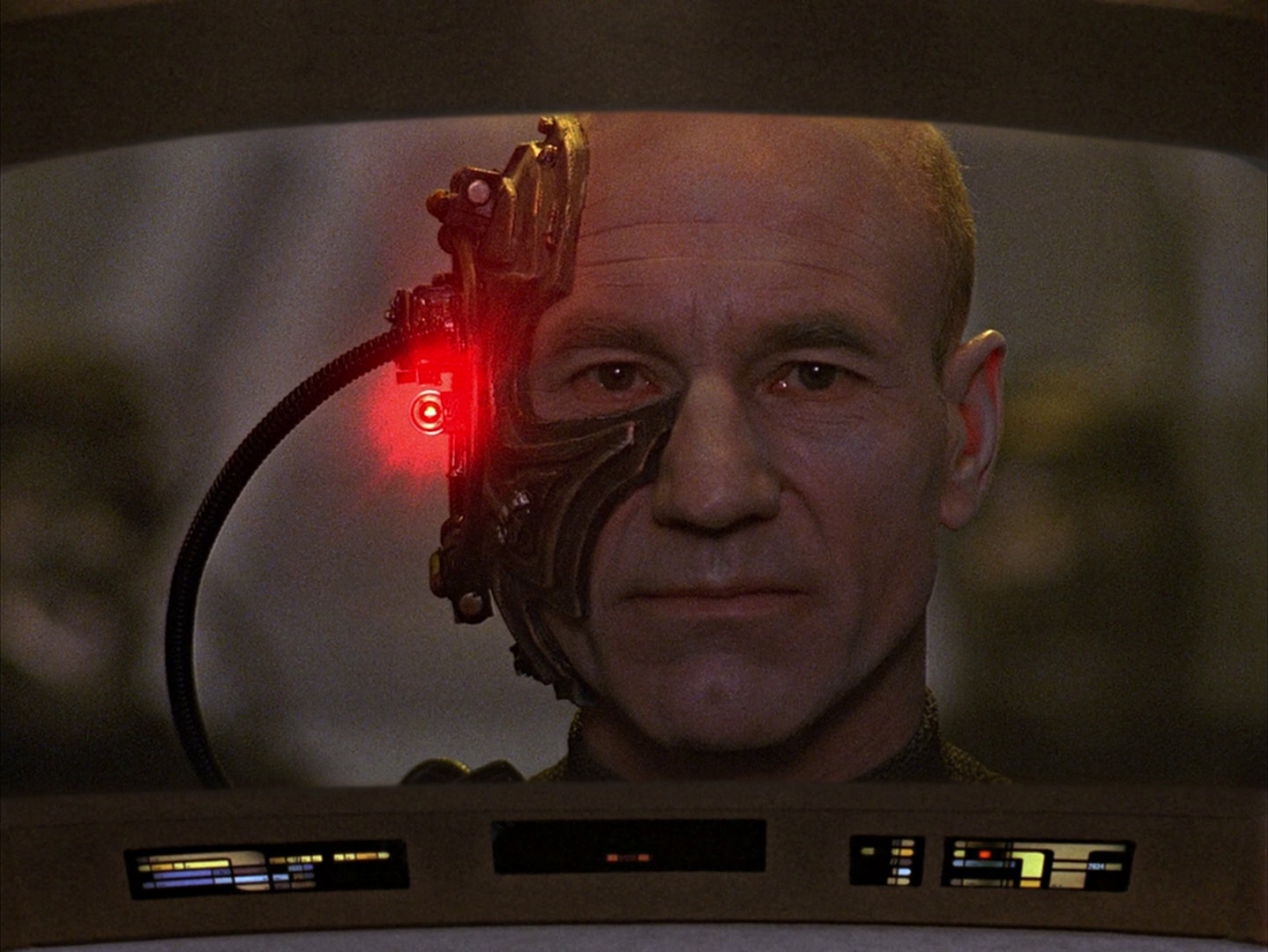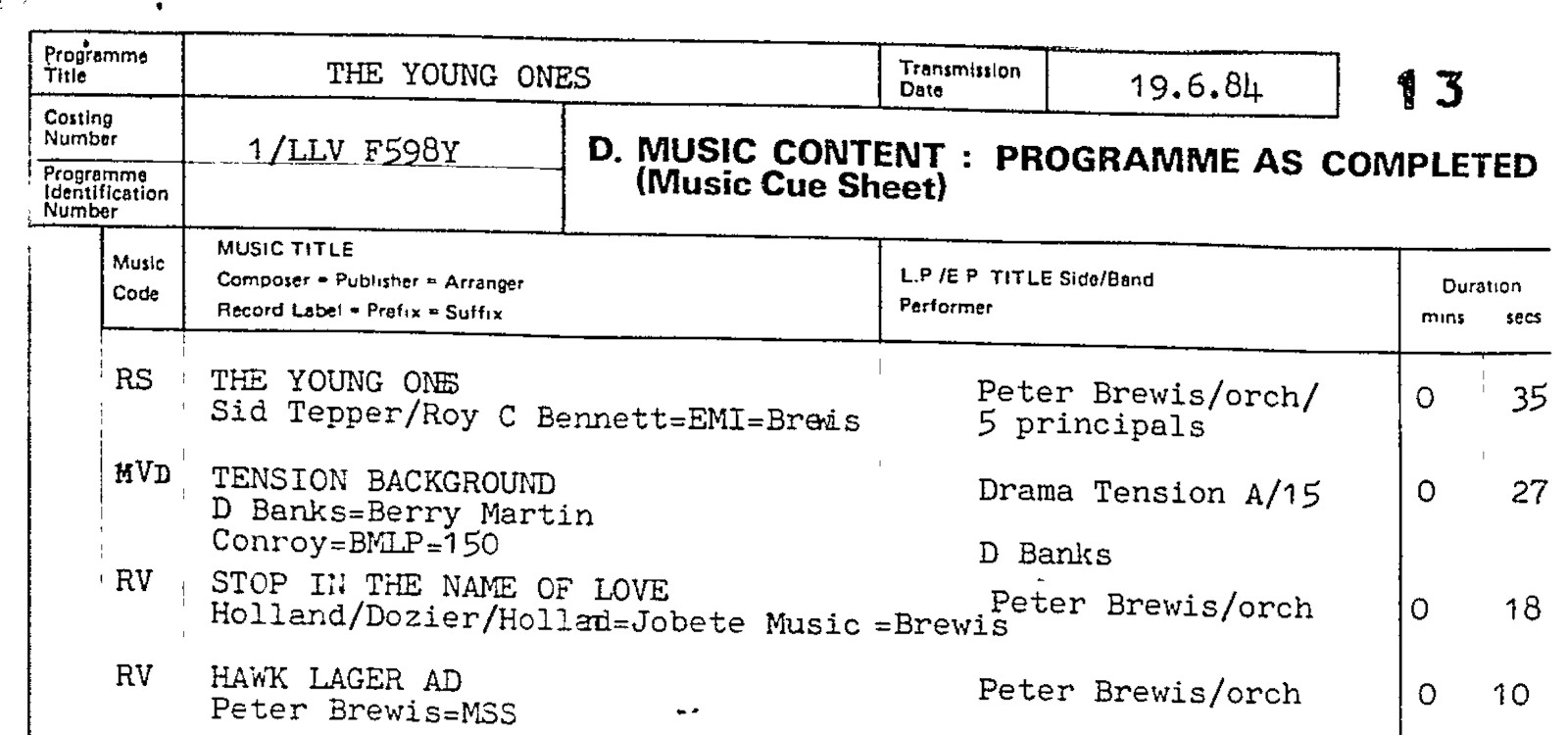Thanks to The Hollywood Reporter, for reminding me that back on the 18th June, it was the 30th anniversary of the Next Generation episode “The Best of Both Worlds”.
“From 1987 to 1989, the voyages of Captain Picard and the crew of the Enterprise-D struggled to be anything more than a passable background watch in its creatively-turbulent first and second seasons. (Season two’s “The Measure of a Man” and “Q Who?” being the lone must-watch exceptions.)”
I mean, everyone’s allowed an opinion, even if it is one of the most tedious Trek opinions I’ve seen for quite a while. I’m just going to vaguely point in the direction of “The Big Goodbye”, “11001001”, “Heart of Glory”, “Elementary Dear Data”, “A Matter of Honour”, and “The Emissary”, and fold my arms in annoyance.
“The episode also doesn’t get much credit for how satisfying it wraps up that storyline for Riker. By radically accepting that an extra rank pip on his collar doesn’t determine his status or worth, Riker makes the very emotionally-honest realization that lets him have an arc even though he’s staying put on the Enterprise bridge. (Piller’s script argues that one doesn’t need to move on or change jobs to evolve personally within their profession. Ironically, Piller would stay on the series as well, before leaving to help oversee Star Trek spinoffs Deep Space Nine and Voyager. The former wouldn’t exist without the storyline established by “Best of Both Worlds”, either.)”
How is that ironic? It’s literally the exact opposite. It would be ironic if Piller had written about how you can evolve personally within the same role, and then left the series anyway, but he didn’t.
OK, whatever, I’m bored with picking apart this article. The reason why I’m pleased to be reminded of this little anniversary is because it lets me be massively self-indulgent, yet again. Back in 2018, I wrote a little piece on here called “6 Times Your Favourite TV Shows Jumped the Shark”. A pisstake of clickbait journalism and the entire concept of jumping the shark itself, I have to admit it’s one of my favourite things I’ve ever written.
It was, however, not originally “6 Times”. In the first draft, it was 10. I’m sure you can already hear the joke wearing thin from here; halfway through the article, the idea just died. So acting on advice from someone used to script-editing comedy or something, I kicked four of the sections out the door. Those excised sections were on Blackadder II (“Bells”), Frasier (“The Ski Lodge”), Happy Days (Season 3, when they changed the theme tune), and… Star Trek: The Next Generation. Guess the episode?
And while the article was fifty times better with these sections deleted, I always had a soft spot for that last little section. My favourite parts of the article were the bits where I was teetering on the line between a bad-faith argument, and something that might be, sort of, valid. I think the below definitely manages that.
So, on the 30th anniversary of that famous episode, here’s a deleted scene from an old Dirty Feed article. I told you it was self-indulgent.
* * *
Star Trek: The Next Generation: The Best of Both Worlds

The third season of TNG is often seen as the moment where the show really came into its own. And it’s true: once Michael Piller came on board, the show took enormous strides in almost every single area. Showpiece episodes like Yesterday’s Enterprise and Sins of the Father are the best remembered, but I’m especially fond of shows like The Offspring – quiet, character-based shows that are the lifeblood of the series.
And then, at the end of the season, the show blows it all away.
It’s difficult to count the number of things the Borgfest Best of Both Worlds gets wrong. There’s Borg expert Lieutenant Commander Shelby, forced into the show purely so Riker can worry about his career. Written by Piller, this pathetically reflected his own worries about whether to move on from the show or stay for a fourth season; possibly the most indulgent thing ever written for the whole of Star Trek. This perhaps wouldn’t matter so much if it worked in-universe, but the whole point of TNG was to show that Starfleet officers had moved beyond petty conflict. The famous “You’re in my way” speech is a betrayal of everything Gene Roddenberry stood for.
But I could deal with that, if the resulting show was entertaining. Sadly, it isn’t. The reason Q Who was so scary is that the Borg acted as one hive mind: relentless, unstoppable. To have Picard assimilated, and act as a Queen Bee figure for our crew to talk to kills off everything which is unique about the Borg. It reduces them to stock villans, indistinguishable from the Romulans except for a few tubes sticking out here and there. You can betray Roddenberry’s future, or destroy a great villain: but in doing both, the series doomed itself.
Season 4 started with a perfunctory resolution to the absurd cliffhanger, and then followed it up with the ludicrously self-indulgent Family, a show with no science fiction elements whatsoever, and thus not even remotely within TNG’s remit. I stopped watching, and I can’t imagine I was alone.
Read more about...
star trek


